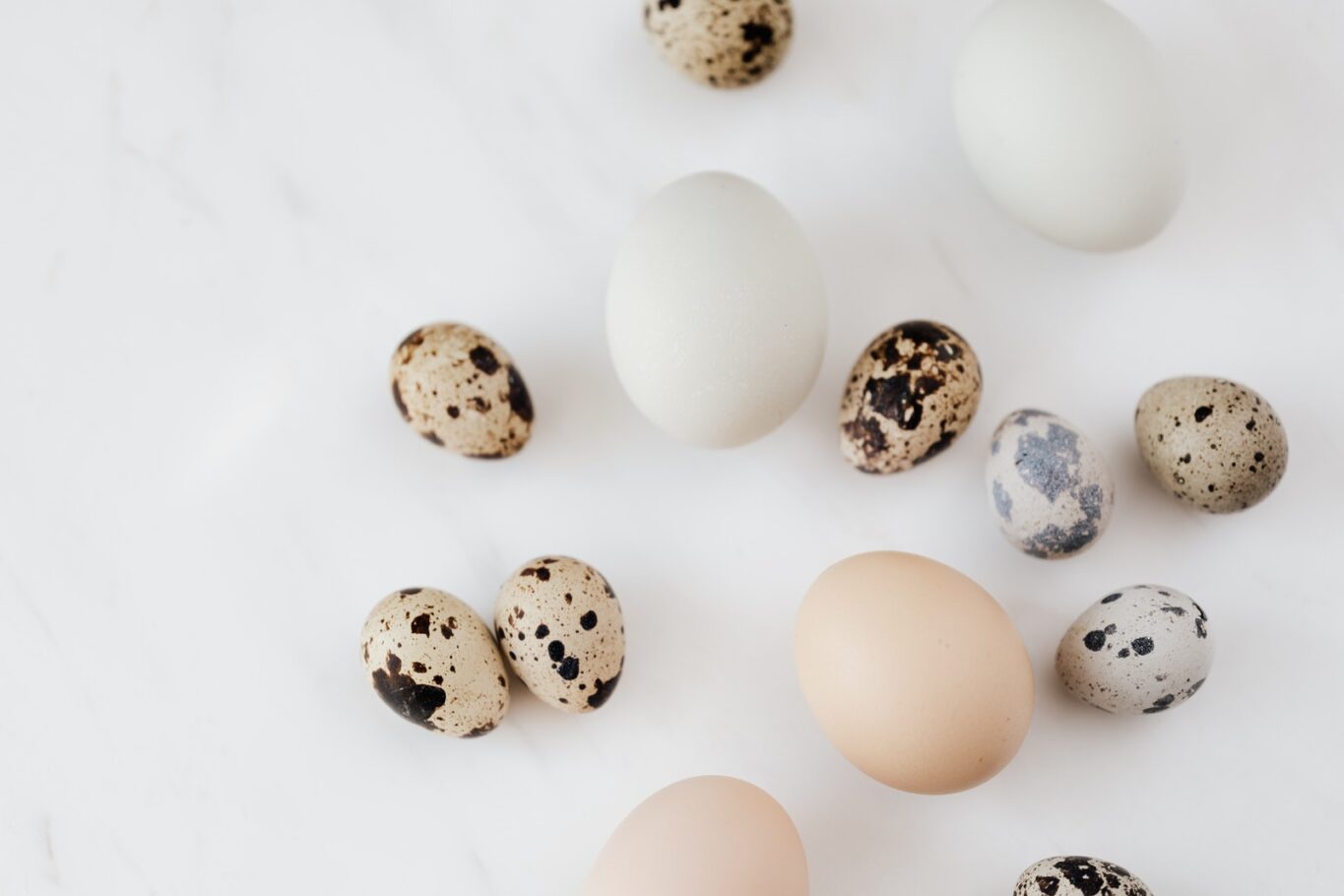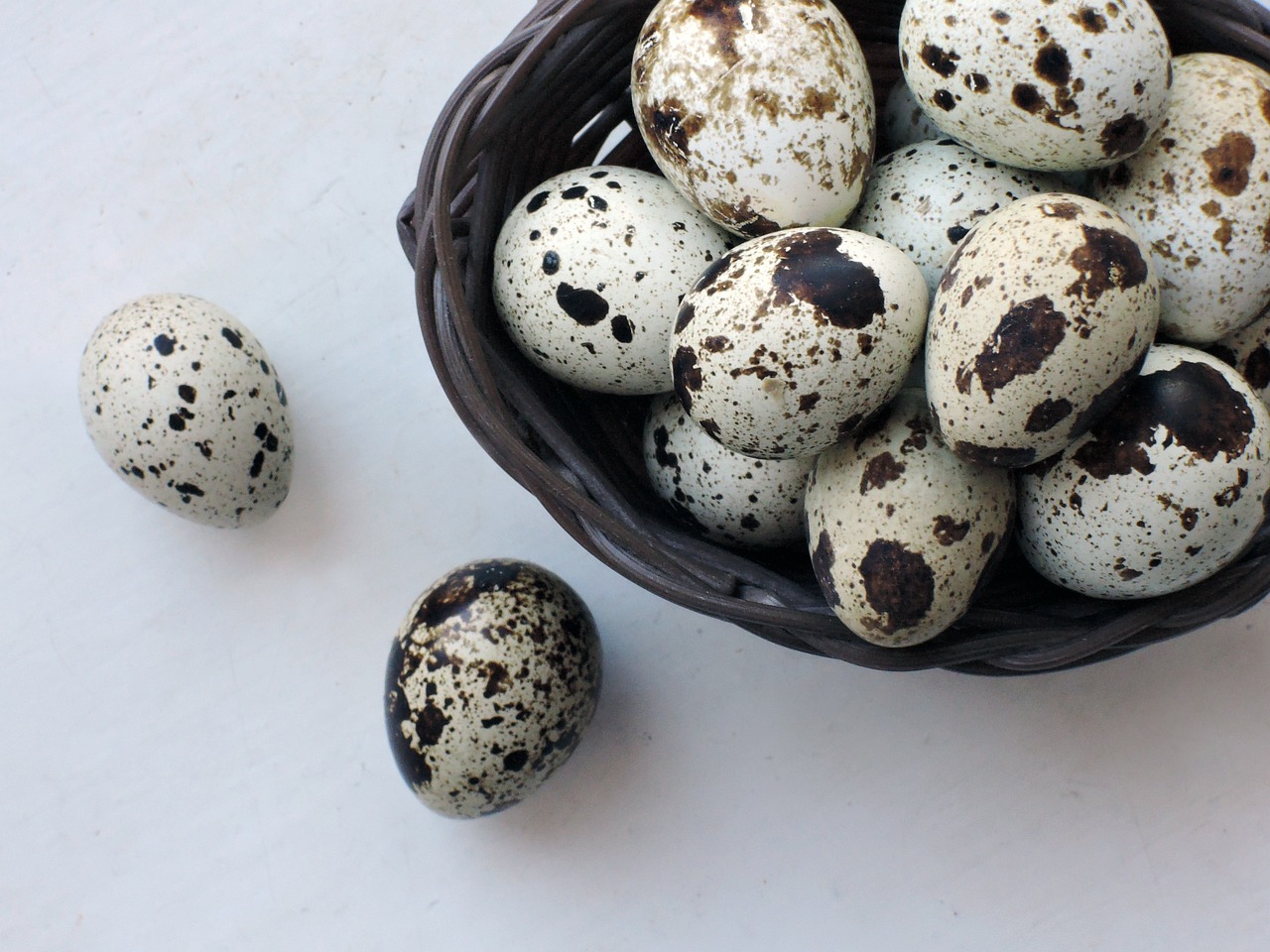I may get commissions for purchases made through links in this post. This helps me to offer you free recipes and blog posts.

Quail eggs are small eggs laid by quail, which are small, ground-dwelling birds that are native to many parts of the world. Quail eggs are similar in size and shape to chicken eggs, but they are usually smaller and more rounded. They have a delicate, slightly nutty flavour and a creamy texture.
Quail eggs are often used in cooking and can be prepared in a variety of ways, including boiling, frying, pickling, and baking. They are commonly eaten as a snack or used in recipes for salads, sandwiches, and omelets.
Most importantly quail eggs are suitable for people with chicken egg intolerance or allergy and can be a great substitute and addition to a healthy diet. Usually 4 to 5 quail eggs equal the amount of 1 chicken egg.
In some cultures, quail eggs are considered a delicacy and are often served at special occasions or as a garnish on dishes. They are also used in traditional medicine in some parts of the world.
Quail eggs are known for their high nutritional value, as they are a good source of protein, vitamins, and minerals. Quail eggs are a good source of nutrients, including protein, fat, vitamins, and minerals. They are particularly rich in vitamins B2, B3, and B5, as well as selenium, zinc, and iron.
One quail egg contains about 6 grams of protein, 5 grams of fat, and 70 calories. It is also a good source of antioxidants, including lutein and zeaxanthin, which are beneficial for eye health.
In comparison to chicken eggs, quail eggs have a higher concentration of nutrients, including vitamin B12 and iron.
It’s important to note that the nutritional value of quail eggs can vary depending on the specific type of quail and the conditions in which the eggs are produced. In general, however, quail eggs are a nutritious addition to a balanced diet.

